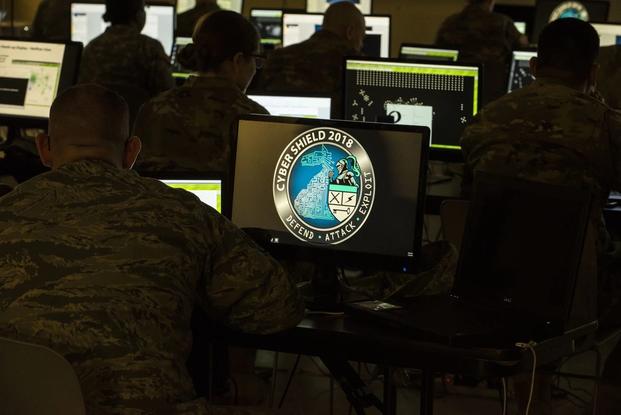America’s next war may not start on land or sea, it’ll start on a server. The Pentagon’s newest partnership with Embry-Riddle Aeronautical University shows how the Department of Defense is trying to get ahead of that fight.
The agreement builds on a simple truth: cyber readiness is national readiness.
Through the Cyber Service Academy Scholarship-for-Service program, the DoD is investing in students who will soon defend U.S. military networks, satellites, and logistics systems.
“This next generation of researchers and operators presents a strategic opportunity for the department and our industry partners,” said Undersecretary Emil Michael, who oversees research and engineering for the DoD. “Their fresh perspectives provide us an advantage in our mission to modernize our forces.”
The Systemic Problem: A Shortfall of Cyber Defenders
The Pentagon’s Cyber Workforce Strategy (2023–2027) outlines a growing shortfall of cyber specialists across all branches. Nationwide, more than 660,000 cyber jobs remain unfilled, according to CyberSeek.
It’s not just a hiring issue — it’s a clearance issue, a training issue, and a pipeline issue.
That’s why the Pentagon is betting on university partnerships like this one to hardwire its talent strategy into the education system itself.
A recent Federal News Network analysis noted that the DoD’s new framework aims to expand the definition of “cyber professional,” opening pathways for analysts, technicians, and operators who previously fell outside traditional IT roles.
Embry-Riddle’s Role: Converting Classroom Skills into Combat Readiness
Embry-Riddle’s Prescott, Arizona campus was selected for its focus on aerospace systems, one of the most targeted domains for cyber intrusions. The university recently received a $1.85 million Cyber Service Academy award, funding full-ride scholarships for students who will enter defense cyber roles after graduation.
“A key reason for winning this award is the confidence the Cyber Service Academy has in our students,” said Dr. Krishna Sampigethaya, chair of Embry-Riddle’s Department of Cyber Intelligence and Security.
“This award showcases Embry-Riddle’s national leadership in cybersecurity education and is a major milestone for our department and the Prescott Campus.”
Embry-Riddle’s experience in aerospace cybersecurity runs deep. Last year, the FAA awarded the university $1.3 million for its Center for Aerospace Resilient Systems, strengthening cyber defenses across aviation networks (Embry-Riddle News).

For Servicemembers and Veterans: Turning Experience into Credentials
For active-duty members, veterans, and ROTC cadets, the partnership provides an on-ramp into the federal cyber workforce.
- SkillBridge participants can complete DoD-aligned cyber internships.
- Veterans can apply GI Bill benefits toward Embry-Riddle’s cybersecurity programs.
- ROTC cadets can graduate with credentials mapped to the DoD Cyber Workforce Framework (DCWF), ensuring they meet federal standards before entering service.
The takeaway is clear: these programs aren’t academic extras, they’re mission-critical tools for force readiness.
Zooming Out: Education as Infrastructure
The Pentagon’s model treats education as national infrastructure.
By aligning universities, defense contractors, and training pipelines, it’s building a distributed cyber workforce network that can scale faster than traditional recruiting.
That systems approach mirrors what civilian agencies are doing through CISA’s Cybersecurity Education and Career Development initiative, which helps bridge academic and federal workforce needs.
Still, experts warn that education alone won’t close the gap.
Retention, compensation, and clearance timelines remain persistent obstacles.
But this new generation of cyber defenders trained at Embry-Riddle and deployed through DoD channels represents the first scalable model of its kind.
“For the Pentagon, the next cyber battle starts long before the battlefield,” one defense analyst said. “It starts in the classroom.”















